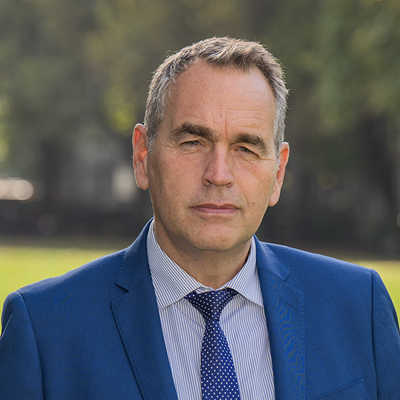Privately-educated athletes “remain significantly over-represented” in Team GB, despite the number of medallists from fee-paying schools tumbling by almost a fifth.
Sutton Trust analysis suggests one in three Brits who finished in a podium place at this summer’s Paris Olympics went to an independent secondary.
While the figure is lower than three years ago, the country’s medallists remained over four times more likely to attend a fee-paying school.
Social mobility professor Lee Elliot Major said the government will have to pay up to level the playing field.
“Sports and arts have been squeezed out of the curriculum, which has increasingly been focused on academic results to the expense of everything else.

“[There should be] more room in the state school day for sports and arts. If we’re going to break down the barriers to opportunity, then you have to make sure young people can access those sports wherever they come from.”
In all, 33 per cent of Team GB medallists attended fee-paying schools, down from 40 per cent at the last summer games, according to the Sutton Trust. The proportion of the population attending private school stands at 7 per cent.
Meanwhile, 52 per cent of this year’s medal winners were educated at a comprehensive and 8 per cent at a grammar. Data was available for 93 per cent of the nation’s top athletes.
Sutton Trust CEO Nick Harrison said independent schools “are typically able to invest more in high-quality sports facilities and have access to 10 times more green space than the average state school”.
“The success of Team GB in Paris is fantastic, and it’s encouraging to see a slight increase in the number of our medallists coming from comprehensive schools since Tokyo.
“However, privately educated athletes remain significantly over-represented among our top Olympians.”
GB progress not linear
The charity noted that progress has not been linear, as the proportion of privately educated bronze, silver or gold athletes stood at 31 per cent in Rio and 36 per cent 12 years ago.
The research also showed that some sports – like rowing, equestrian and swimming – were heavily dominated by private school attendees.
In comparison, just 15 per cent of the men’s Euros football team and none of the women’s football world cup squad attended a school that charged for places.
Harrison said “it’s crucial that more is done to ensure all children have access to sports”, with “many” leaders having “to cut back on sports and extracurricular activities due to funding pressures”.

Schools Week revealed three years ago that Eton did not produce a single medal winner at the Tokyo games for the first time in almost three decades.
British alumni from England’s most famous private school had won at least one podium place at every Olympics since at least 1992.
The Sutton Trust’s analysis shows Eton’s dominance has continued to weaken, as there were no Team GB medallists who had attended Boris Johnson’s old stomping ground in Paris.
Meanwhile, 60 per cent of the country’s top athletes had attended university, up from 55 per cent in 2021. Nationally, about 50 per cent of young people attend uni by the age of 30.
Triathlete Alex Yee – who a gold and bronze in the French capital – was one of those who attended a state secondary, the Kingsdale Foundation School in Dulwich. Staff from the school “were extremely proud” of the Olympian.
Bosses of the King’s School, a fee-paying independent in Chester, said their former pupil and rower Harry Brightmore “had us on the edge of our seats” as he won gold in the men’s eight.
And reacting to Sophie Capewell’s gold in the women’s team sprint in the velodrome, her old school Nether Stowe, an academy in Staffordshire, wrote online: “[We] are so proud of you. A stunning performance in the women’s team sprint to defeat New Zealand. Our Olympic champion.”
















The whole argument is plainly ridiculous since even the supposed “state school” athletes nearly all rose through PRIVATE sports clubs. Do Sutton Trust want to object to these too? But let’s go with their “reasoning”. Take away independent schools and Britain plummets down the medal table – unless the taxpayer & the government can be persuaded to pump billions into school facilities. And even if this were to happen (which it obviously won’t) without a commitment to sporting excellence, there is unlikely to be the same medal yield. It doesn’t matter anyway since it’s the National Lottery and the private clubs that drive success. You can take the view that the Olympics are a charade and gold medals don’t matter. But the whole premise of the article is that we should care how well team GB performs. Given that, if people want to voluntarily fork out extra to fund independent sports scholarships – let them. That gets us one third of the way there. As for the other two thirds, what were my lucky numbers again? Here’s hoping it’s a roll-over.